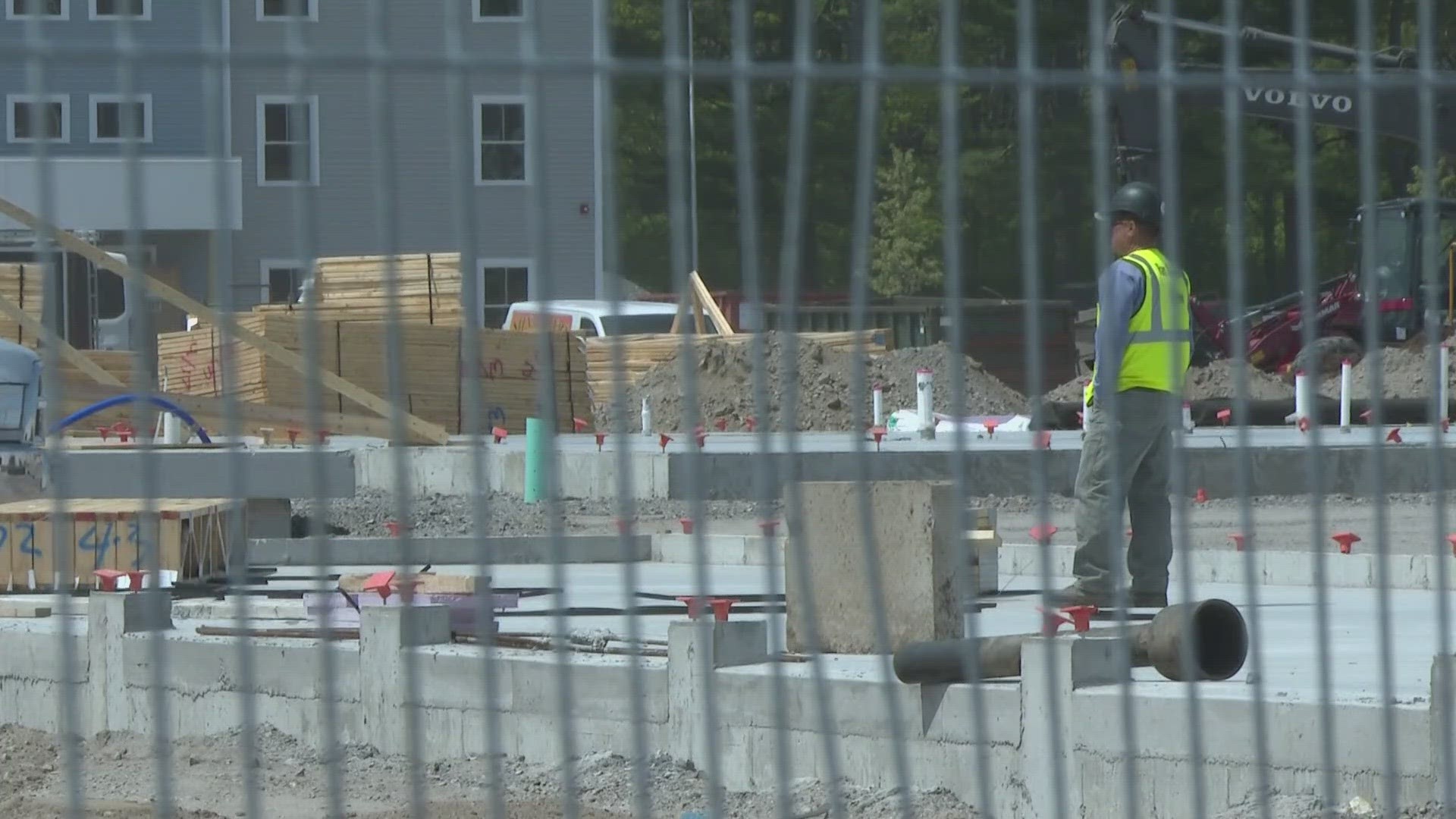BRUNSWICK, Maine — Dave Holman stands on land that’s just been cleared of trees, beside a pile of earth and torn-up stumps, and visualizes what’s about to be built.
"It's going to be 63 units, have underground parking, elevator to the fourth floor, five counting the garage," Holman explains, detailing the apartment building he is developing at Brunswick Landing.
The building will be highly energy efficient, with heat pumps, EV chargers, and more. It will also have a mix of income levels, from low-income affordable housing apartments to higher-end units and others in between.
"That’s something I like, where you will have pretty low-income people living in the same building with moderate to high-income people. The rent range will be about $1,300 to $2,500 [per month]," Holman said.
The new building is one of three apartment projects now under construction at Brunswick Landing, the site of the former Naval Air Station. The others are a complex of more than 180, mostly market rent apartments, according to Town Economic Development Director Sally Costello, and another project that will house 60 asylum seeker families.
They come on the heels of another 100-plus unit apartment complex completed about a year and a half ago.
Costello said Brunswick, like many other places in Maine, has a major need for new housing.
"The last time we had any significant housing built was in the 1980s," Costello said. "So we need new housing. We need to increase production."
She said the biggest need is for what’s called “workforce housing." Basically, homes and apartments for middle-income people.
With high construction costs and high home and rent prices, those workforce apartments and houses are harder to build nowadays, she added. So the town agreed to provide financial incentives for Holman’s project that will basically reduce the building’s property taxes, in exchange for a certain number of reduced rent apartments.
"We need all types of housing, including the lower end, but the workforce housing is the hardest to build, because of the price range. It really needs to be facilitated through public-private partnerships," Costello said.
"We are talking working people," Holman said. "We are trying to build the workforce housing, so if you have a job or two jobs in the household this will be less than a third of the monthly income."
The developer and the town official both said Brunswick may currently be in a better situation than other communities, as far as housing goes, but that apartments alone won’t take care of all the problems.
"I would say what we really need is starter homes," Costello said. "That’s what we’re lacking and it will take some partnerships to get there."
Starter homes are typically small and relatively affordable single-family houses—a type that used to be built in Maine decades ago but now are less common.
The two said construction and land costs often make those difficult to build. Holman said zoning regulations often discourage such projects as well.
"Zoning is part of it, because if you’re only able to build one house on the lot, as a developer you will build the biggest house you can," Holman said.
Holman added towns and cities need to revisit some of their zoning rules to allow greater density of construction, to encourage building more homes on a given piece of land.
Both said other alternatives need to be explored as well, such as new mobile home parks, starter home developments, and even tiny house developments. Many of those, they agree, will also require some level of government help, from zoning to financing, to make them happen.

